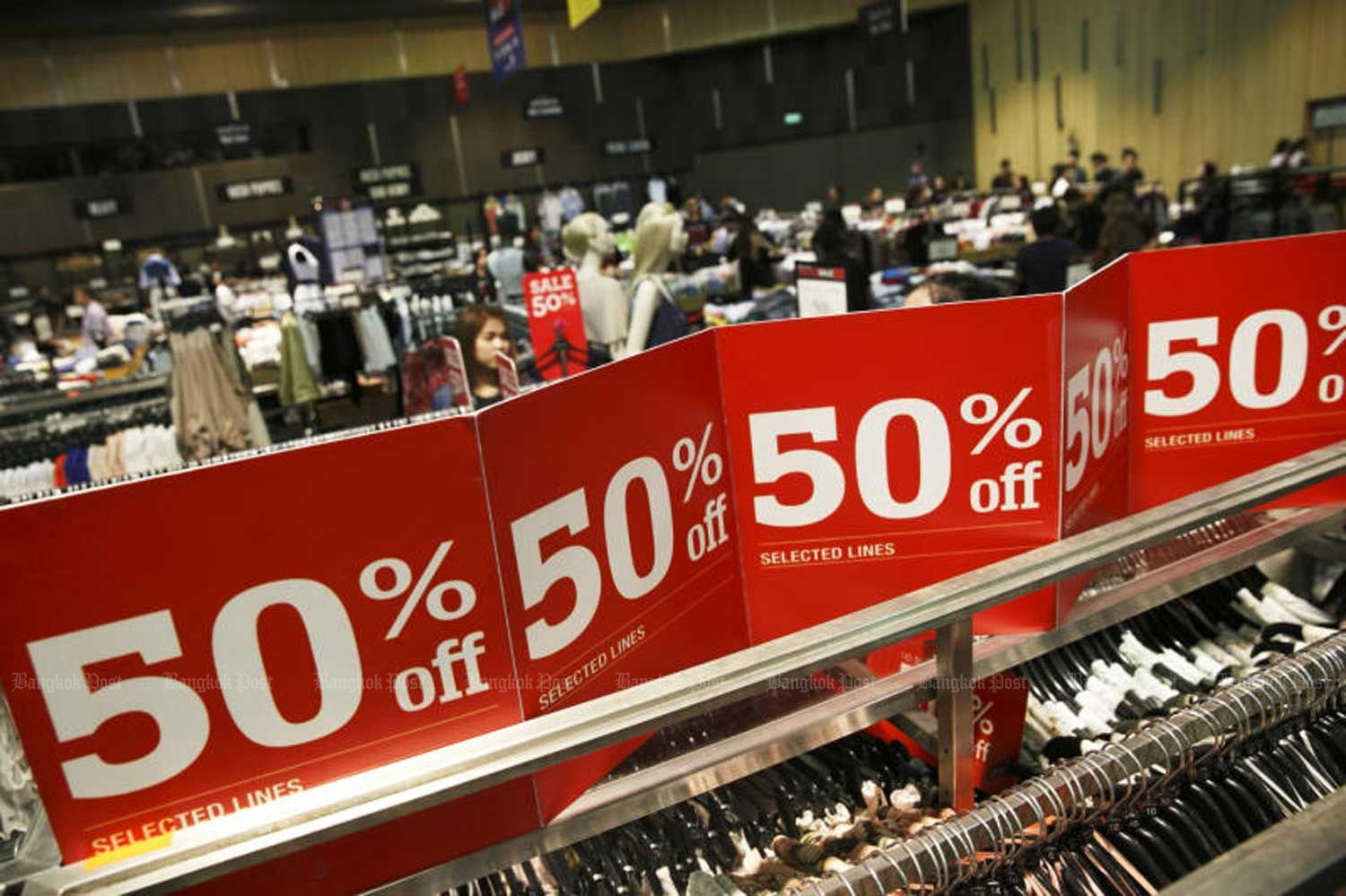
Consumer confidence plunged to the lowest level in 33 months in August as people fretted over domestic political stability, slowing economic growth and global economic uncertainty.
According to the latest survey by the University of the Thai Chamber of Commerce (UTCC), the consumer confidence index fell to 73.6 points last month from 75 in July, marking the lowest level since December 2016.
The index fell for a sixth straight month in August despite the cabinet's recent approval of a 316-billion-baht stimulus package.
Thanavath Phonvichai, vice-president for research at the UTCC, said consumers were concerned about political stability and slowing growth.
Consumer purchasing power remained weak as agricultural prices failed to improve.
"The uncertainty of the world economic outlook stemming from the escalating trade row between the US and China and the Brexit impasse also aggravated consumer sentiment," Mr Thanavath said.
Various negative factors are likely to keep spending cautious this quarter, he said.
The survey did not include the impact of flooding from tropical storms Podul and Kajiki. The university estimated that flooding caused damage in the range of 5-8 billion baht to agricultural areas.
Mr Thanavath said the government's stimulus measures and higher spending for maintenance and repairs to flood-ravaged areas are expected to help boost economic growth to 3-3.2% this year.
"The government should also ease financial and monetary policies to stimulate the economy in the remaining period of the year," he said.
Sanan Angubolkul, vice-chairman of the Thai Chamber of Commerce, said the issue of most concern for exporters is the stronger baht.
Having a currency stronger than those of competitors will affect Thailand's overall export competitiveness and exporters' profit margin.
Mr Sanan said most Thai manufacturers operate on thinner margins now that income in baht terms has declined by more than 10% in the year to date.
"The private sector no longer has the guts to increase investment," he said. "Most manufacturers are reducing their stock and production capacities."
Worse yet, Mr Sanan predicts cheap Chinese products to flood the Thai market because of the mainland's yuan weakening policy.